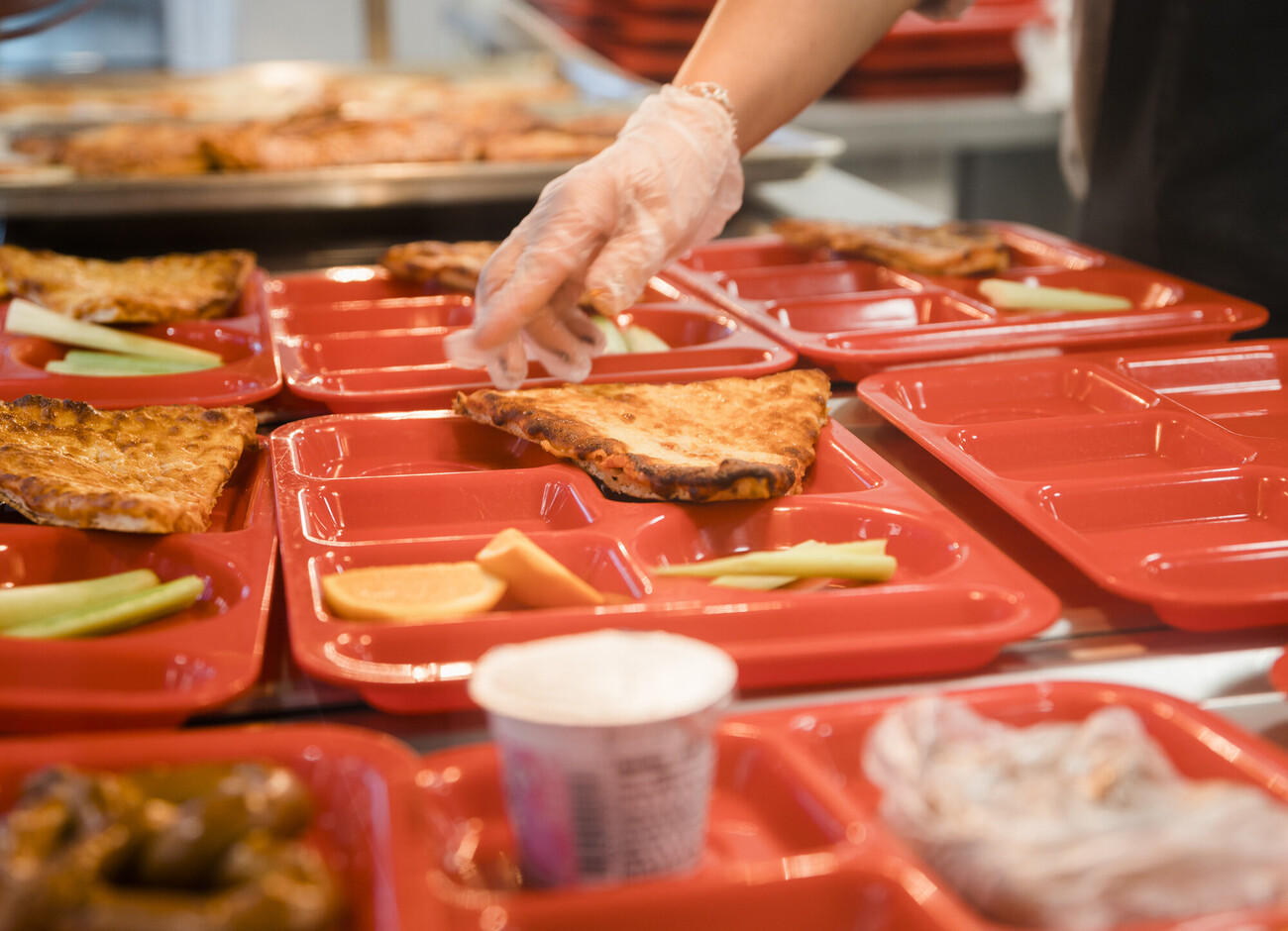BOSTON — Statewide free school meals are here.
All public schools in Massachusetts will permanently offer free meals for all students starting in the 2023-24 school year after Gov. Maura Healey included the program in the Commonwealth’s $171.5 million fiscal year 2024 budget, a portion of which will be paid for in part by the so-called “millionaire’s tax,” according to the State House News Service.
“Learning outcomes are better when kids aren’t hungry,” state Sen. Brendan Crighton said. “It takes away the stigma for folks who are of lower income when you just have one system for everyone.”
Jennifer Lemmerman is the vice president of public policy at the anti-hunger nonprofit Project Bread, which was one of the organizations pushing for statewide free meals.
According to Lemmerman, the program builds off of the free school-meal programs that were offered to the more than 910,000 students in Massachusetts public schools during the COVID-19 pandemic, which were funded by federal programs and then extended by the state last school year.
“We are thrilled,” Lemmerman said. “It’s a major investment for the state, but it’s one that has been such an enormous success and supports so many kids.”
Lynn Public Schools has offered free school lunches for its more than 15,000 students since 2018.
Lynn Mayor Jared Nicholson said he was happy to see free school meals be available to students across the state.
“(Lynn) has seen the positive impacts it has left on our youth and their families,” Nicholson said. “We are excited to see this program expand across the state, providing much-needed support to all families by promoting equitable access to healthy meals and reducing food insecurity.”
Crighton said the program will benefit those in towns that did not previously have universal free-lunch programs, but still have community members facing food insecurity.
“Even communities that are considered to be affluent have families that deal with food insecurity,” Crighton said. “This will make things a whole lot easier for them.”
House Minority Leader Bradley H. Jones Jr., whose district includes Lynnfield, noted the program will save families thousands of dollars each year, along with providing benefits to students in the classroom.
“Many students in Massachusetts are dealing with food-insecurity issues, which can negatively impact their health and their ability to perform well in school,” Jones said. “I’m proud to support this program, which will help to ensure that no student in Massachusetts goes hungry and every student comes to school prepared to learn.”
Pola Andrews, executive director of finance and administration for Saugus Public Schools, said in a Saugus School Committee meeting after Healey signed the budget that the program was an important and transformative opportunity for students.
“It was probably the happiest day of my career as a school business official,” Andrews said. “Universal free meals means that every child will be eligible for free breakfast and free lunch, there will be no payment whatsoever taken.”
Lemmerman stressed that schools will be able to continue creating their own menus that meet federal guidelines for school meals, just as they had before.
“School nutrition directors have the opportunity to be, and so many are, creative in how they create their menus,” Lemmerman said. “That will continue across the state. There’s nothing in the law that passed in the state budget that dictates what is served.”
Lemmerman and Crighton said that one of the biggest impacts of the program will be felt outside of the cafeterias and lunchrooms across the Commonwealth.
“Study after study has shown how important it is for kids in a school setting to not be hungry and to have access to nutritional food,” Crighton said. “Learning outcomes are better when kids aren’t hungry.”

